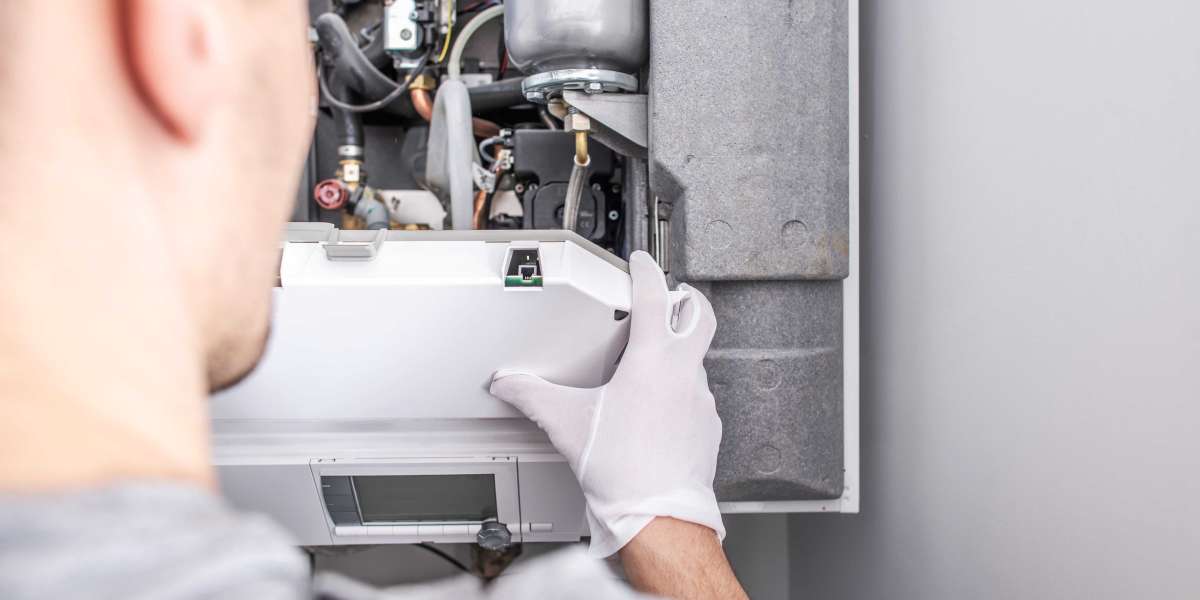If you own a property, it is legally required that local authorities are informed when an appliance that produces heat using gas or flue is installed on the property. This is because of the building regulations Part J that requires all gas safe registered engineers to inform the authorities.
 This is also true for landlords. However what is the reason to get a gas safe certificate?
This is also true for landlords. However what is the reason to get a gas safe certificate?It's a lawful requirement
Every year, people suffer from in poor health, and some even die from carbon monoxide poisoning caused by gas appliances and flues that weren't properly installed or maintained. Gas certificates are therefore essential. It's an obligation for landlords, and proves that all work performed on their property is done in conformity with the regulations of GSIUR. This ensures the safety of tenants and other tenants.
In England and Wales landlords in England and Wales are required to inform the local authority whenever a heat-producing appliance, such a boiler, is installed on their property. This is the case for both residential and non-residential buildings. The Building Regulations include this obligation to inform local authorities.
If a landlord fails to meet these standards, they may be fined, or even jailed. It is crucial that landlords possess gas certificates. It allows them to avoid legal problems as well as keep their tenants safe. Without an insurance certificate, the protection of a landlord may be invalid.
Gas Safety Certificates (CP12) are a legal requirement in the UK for landlords. The gas engineer issues the certificate after an annual inspection which includes a review of the safety and effectiveness of all gas appliances in the property. The certificate is then sent to the Local Authority and the gas company.
The gas engineers who do the work are vetted by the Gas Safe Register and must be licensed to install such equipment. They are also accountable for notifying any installation that falls within the Building Regulations. This includes any structural alteration to a heating system for example, moving an existing boiler.
In certain instances, the Declaration of Safety can be sent instead of an Building Regulations Compliance Certificate. This is usually the case for flueless gas appliances such as cookers or hobs. However, landlords are able to inform local authorities of any such appliances in order to receive an Declaration of Safety.
It's a peace of mind
Gas certificates aren't just legally required and are also a guarantee of your safety and the safety of your family. Every year, a lot of people fall ill from carbon monoxide poisoning or get killed by unsafe gas appliances. To ensure that your flues and appliances are safe, get a professional to inspect them. This is done to comply with the Gas Safety Installation and Use Regulations 1998 (GSIUR).
When a licensed engineer has verified that your boiler is safe, they will inform the local authorities via Gas Safe Register. This must be done within 28 days of the time that the work was completed. The Building Regulations Compliance Certificate will be sent to you by post. It is important to keep it in a secure location as it may be needed when you sell or refinance your home. If you lose your Certificate you can obtain a duplicate by contacting the Gas Safe Register. A small fee will be charged.
Landlords are legally bound to get an Gas Safety Certificate and conduct periodic inspections of their properties. This is due to the GSIUR regulations that were created to protect tenants from dangerous gasses. It is crucial that you as a landlord follow these rules to avoid fines and prosecution.
It is important to keep in mind that not all plumbers are registered with Gas Safe, so you should always check before hiring one. Only Gas Safe registered plumbers can perform work on gas-related equipment. Gas work is not legal when you aren't registered with Gas Safe.
There is no need for an gas safety certificate when you own your home or lease it out. It's recommended to get one because it will provide peace of mind and protect your property from liability in the future. It's an excellent way to prove prospective buyers that your property is in compliance with the current gas safety standards. This will help you to get a higher price for your home.
Insurance is a legal requirement
All UK landlords are required to hold a CP12 or a gas safe building regulation compliance certificate. It is legally required to prove that your home meets standards set by the government for gas appliances. It can be used to prove that you've been inspected regularly. This is required by boiler manufacturers to ensure warranties are valid. Keep an original copy of the certificate in case you want to sell your house in the future.
A Gas Safe Registered engineer must inform the installer of any heat-producing gas appliance within 30 days. This can be done via self-certification or by visiting the Gas Safe Register. The engineer will then send an official Declaration of Safety or Building Regulations Compliance Certificate to you and your local authority.
There aren't any legal consequences for homeowners who do not have gas certificates. However, if you plan to sell your home it is crucial to get one. This will make it easier for prospective buyers to feel confident that your home is secure and can help speed the process of selling your home.
Landlords are required by law to conduct a thorough inspection of their homes and get a gas safety certificate, but homeowners aren't. It's a good idea for homeowners to get a gas safety inspection done by an Gas Safe registered technician every year. This will provide homeowners with peace of mind and they may even save money in the future because their appliances are likely to be covered under insurance policies.
The Building Regulations were created to ensure the safety of a building's occupants. Part J of these regulations focuses on gas safety. This requires landlords notify their local authorities when they install a heat-producing gas appliance. This information is included in the appropriate Building Regulations Compliance Certificate.
It's not possible to voluntarily notify your local authority that you've installed a brand new gas boiler or heating system in your home, however there are exceptions for flueless systems such as cookers and hobs that are able to be reported under the same scheme. You can also submit details of non-domestic appliances to your local authorities by the same method. However, you will not be issued a certificate of compliance.
It's a letting condition
A gas safe building regulations conformity certificate is required for landlords who wish to legally rent out their properties. The certificate states that the appliances are safe to use and has been tested by an engineer. Landlords need a certificate to let their property and they must renew it every year. A certificate can assist in avoiding any issues down the road and can be beneficial to potential buyers and mortgage lenders.
Gas safety certificates are a legal requirement for all landlords who have residential or commercial rental properties. It is issued by a qualified Gas Safe registered engineer after an inspection. It's valid for 12 months. Landlords are required to give their current tenants an original copy of the certificate within 28 days and issue a new gas safety certificate for any new tenants. The certificate must be displayed prominently and indicate how tenants can obtain an original copy.
Part J of the Part J of the Building Regulations is a concern for gas safety. It requires landlords to notify local authorities when a heating appliance is installed and to obtain a Gas Safe certification for the installation.
It is essential for landlords to know the difference between gas safety certificates and a building regulations compliance certificate. The latter is a requirement for all countries within the UK, including Northern Ireland and Scotland. It is also required in the Isle of Man and Guernsey. A Building regulations compliance certificate is a more thorough document that requires the engineer to inspect every aspect of the building, including ventilation and carbon monoxide detection and flues and boilers.
If the structure is not in compliance with the regulations, it will not be granted a compliance certificate by the local authority. The owner must be aware of the differences between the two documents and take steps to ensure they are in compliance. It is also a good idea to keep copies of certificates in case you need them in the future for remortgages and sales.









